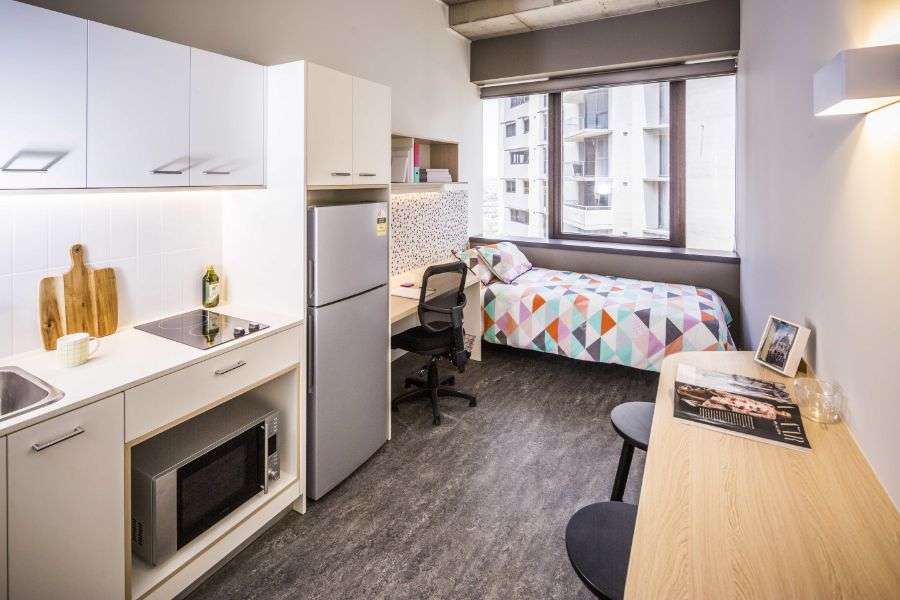Finding affordable student housing is one of the biggest challenges for international students. Rent and living expenses can take up a significant portion of your budget, so choosing the right accommodation is essential. Whether you’re looking for university dorms, shared apartments, or private rentals, this guide will help you navigate the process and find budget-friendly housing options while studying abroad.
1. Start Your Search Early
The earlier you start looking for accommodation, the better deals you’ll find. Many universities provide student housing, but spots fill up quickly. If you’re planning to rent privately, searching early will give you more options and better prices.
2. Consider University-Provided Accommodation
Most universities offer on-campus dormitories or student residences at a subsidized rate. Living in university housing can be cheaper than renting privately and provides benefits such as:
- Proximity to campus
- Utility costs included in rent
- Access to student support services
Check with your university’s housing office for available options.
3. Look for Shared Apartments or Flatshares
Sharing an apartment with other students can significantly reduce your rent and utility bills. Many students prefer flatshares because they offer:
- Lower rent costs compared to private apartments
- A chance to make friends and build a social network
- Shared expenses for internet, electricity, and other bills
Websites like Roomster, SpareRoom, and Facebook Marketplace can help you find roommates and shared housing.
4. Use Student Housing Websites
There are several platforms dedicated to helping students find affordable accommodation:
- Uniplaces – Offers verified student accommodations in multiple countries
- Student.com – Connects students with housing providers
- HousingAnywhere – Helps students find short-term and long-term rentals
These websites provide secure booking options and prevent scams.


5. Explore Homestays for a Budget-Friendly Option
A homestay involves living with a local host family. This can be an affordable alternative to renting while also offering:
- A cultural experience and local guidance
- Meals included in rent (in some cases)
- A safer living environment for first-time travelers
Websites like Homestay.com and Host Families can help you find host families abroad.
6. Consider Off-Campus Private Rentals
If you prefer independence, renting a private apartment could be an option. To keep costs low:
- Look for housing outside the city center, where rent is generally cheaper
- Negotiate your rent with landlords, especially for long-term leases
- Check local Facebook groups and student forums for rental listings
Websites like Craigslist, Zillow, and Gumtree can help you find affordable rentals.
7. Check Local Student Housing Organizations
Some countries have government or university-affiliated student housing services:
- Germany: Studentenwerk offers affordable student dormitories
- France: CROUS provides subsidized housing for international students
- Canada: Many universities offer off-campus housing assistance
Check if your study destination has similar student housing organizations.
8. Be Aware of Rental Scams
Unfortunately, rental scams are common. To protect yourself:
- Never send money before seeing the property or signing a contract
- Verify landlords and listings through official websites or university recommendations
- Avoid deals that seem too good to be true
If possible, visit the property in person or arrange a virtual tour before committing.
9. Consider Short-Term Housing First
If you’re unsure where to stay, book temporary accommodation for a few weeks while you explore options in person. You can find short-term housing on:
- Airbnb – Ideal for short stays while you search for long-term rentals
- Hostels – Budget-friendly and great for meeting other students
- University guesthouses – Some universities offer short-term housing for new students
10. Budget for Additional Costs
When planning your housing budget, consider extra costs such as:
- Utilities (electricity, water, internet, heating)
- Security deposits (usually one or two months’ rent)
- Furniture and household essentials (if renting an unfurnished space)
Conclusion
Finding affordable student housing abroad requires planning and research. Start early, explore university accommodations, and use trusted housing websites to avoid scams. Whether you choose dorms, shared apartments, or homestays, selecting the right housing will ensure a comfortable and budget-friendly study abroad experience.




